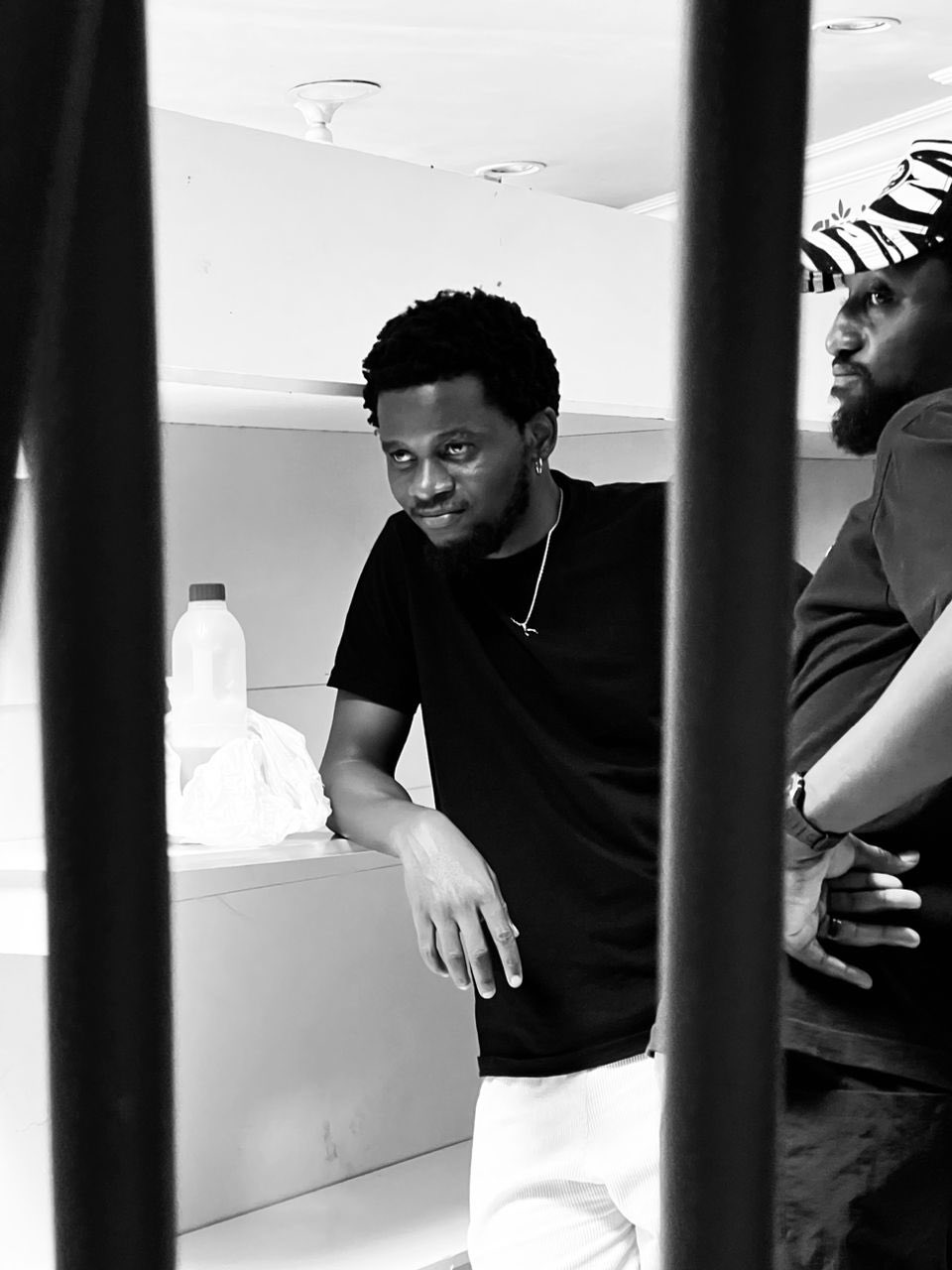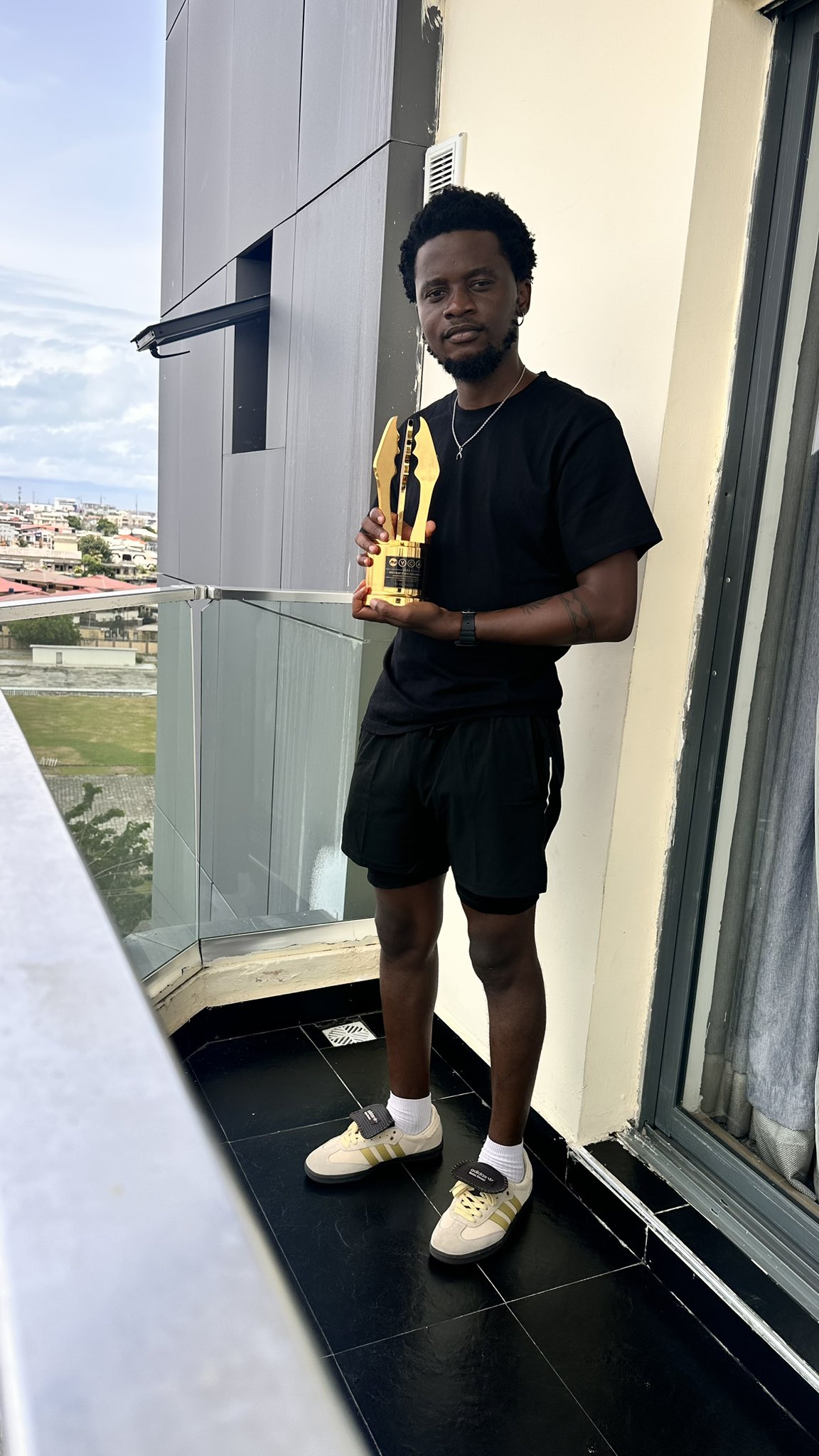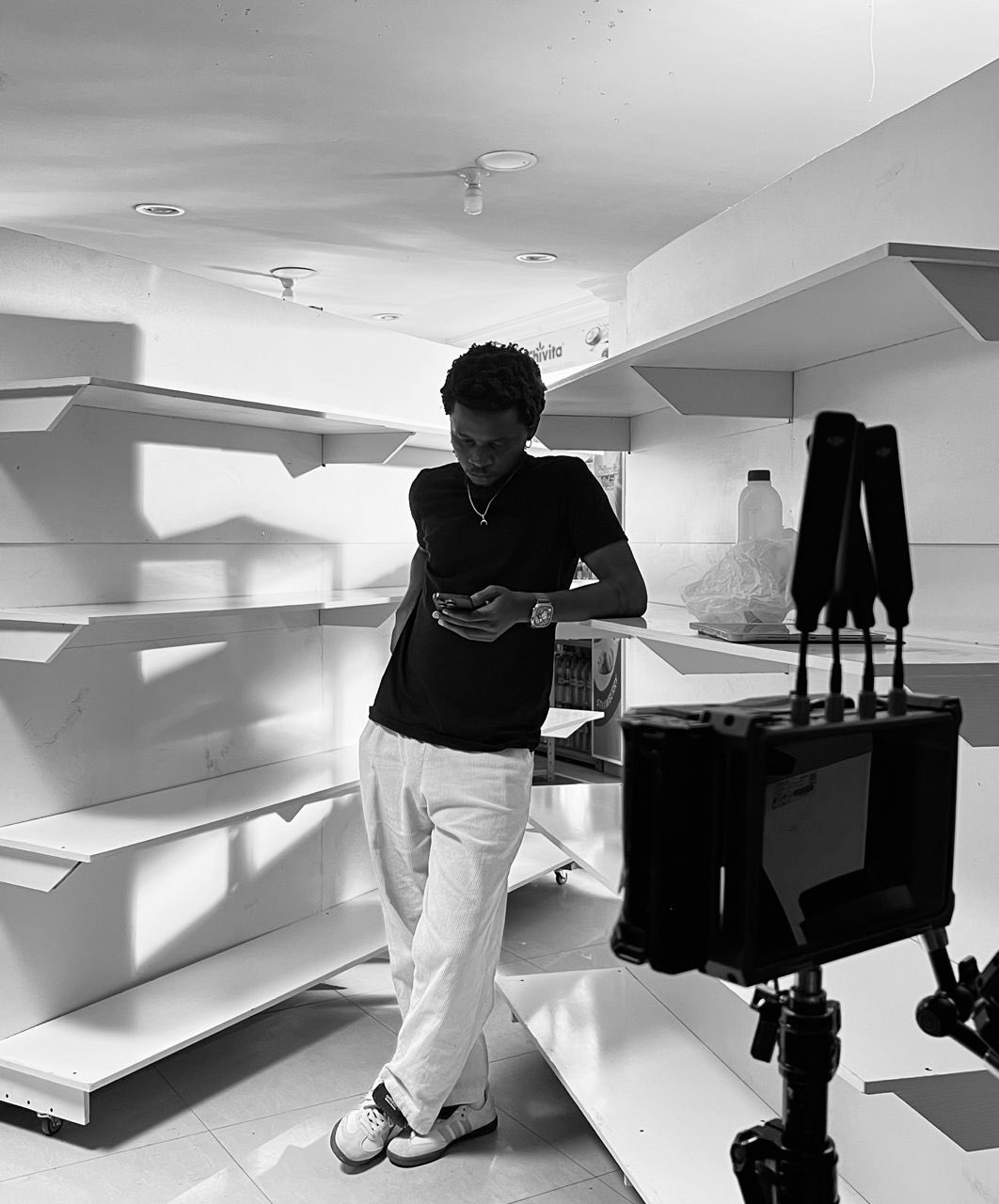Doing Life With… is a BellaNaija Features series that showcases how people live, work, travel, care for their families and… everything in between. We are documenting the lives of all people and ensuring everyone is well-represented at BN.
Did you miss our last conversation with Emmanuel Osahor? You can catch up here.
This week, we are featuring KC Obaijulu, a multi-talented Nigerian cinematographer known for his work on notable modern Nollywood films, including “Over The Bridge,“ which won him the 2024 AMVCA for Best Cinematography. Enjoy the conversation!
_
Hey KC Obiajulu, describe how you’re feeling in three words
Hey, BellaNaija. I would say anxious, excited and hopeful.
Great! What are you currently working on?
Right now, I’m in Okija, Anambra state. I’m working on a documentary called “Uruji.” I’m also doing post-production for “Something About the Briggs,” and “Man in the Mirror”. I’m planning a couple of commercials for December. There are two commercials on my desk and there’s a music video. So, yeah, I’m just working on a bunch of stuff.
You seem busy
I actually am.
What’s the best part of being a cinematographer?
The best part is that you get to shape how people perceive something. Most audiences are visually driven – what they see, how you block a scene, and how actors perform in front of the camera determine how they will react to certain things. Knowing that you are capable of doing that? It’s like having superpowers.
What’s the most exciting project you’ve worked on?
It has to be “Rehearsal.” I love it. It’s a short film directed by Michael Omonua. It’s an amazing film and a turning point in my career. That was when I realised how important the power of storytelling with a camera is. And not just pointing the camera and shooting stuff, but actually understanding the story and knowing how to approach it visually and creating a visual language for a film. I think that is the most exciting project I’ve worked on.
Can you share a bit about your background?
I will start from my teenage years when I moved to Jos. I attended the University of Jos and later went to film school. My first inspiration came from my mother, who was a cinematographer and a journalist. Following in her footsteps, I began my career as a journalist before becoming a cinematographer. I grew up immersed in the world of entertainment, often watching my mother go to work. I even worked as her assistant for a while, which helped me gain valuable insights into the industry.
During this time, I met Sammy Adesuji, a colleague of my mother, who mentored me in journalism. Eventually, I went to film school to learn the theoretical aspects of filmmaking.
Is there any key moment from your journey that shaped you into what you are today?
Everything shaped me, but the moment I decided that I would be a cinematographer was when I was on “Blue Flames” set by Papel Apel, a filmmaker based in Abuja. The first day on the set, I spoiled the camera. I got fired. But I refused to leave. I stayed back and said to him, “I came here to learn and learning I will do.” For spoiling his camera, that wasn’t such a wise thing to do. But it turned out to be great. The likes of Bimbo Akintola and Keppy Ekpeyong begged on my behalf and I eventually stayed back. It was embarrassing but I finished the project. That day, I decided I was going to make a living as a cinematographer. I was going to make a living out of that thing that embarrassed me.
We admire that determination
Thank you.
So that was how your cinematography journey began
Yeah, pretty much that. It all began in Jos. After that embarrassing moment on Papel’s set, I went back to school and, as a final year student, I changed my major from directing and writing to cinematography. I started shooting all kinds of films. My classmates didn’t trust me enough to shoot certain things, so I had to force them to allow me. I performed horribly. I was shooting giant grains in broad daylight. The exposure was off. I was reflecting in the actors’ glasses. But I was just very enthusiastic about the whole thing, and I learned from that.
It made me want to do more. I interned as a second AC and then I became a first AC. That’s how I found my mentor, Kago Idebo, “Bishop,” as people know him. He mentored me for a few years and eventually, I moved to Lagos. He recommended me for a job where I worked on a project and I met Muhammad Atta who is an amazing guy and mentor. So I had Kago and Muhammad mentor me for about seven years. As a camera preacher, I was studying their work and the works of the likes of Wale Fista, whose work inspires me a lot.
When I transitioned from being the first AC to camera operating for these people, I became a cinematographer for them on certain projects. And that’s how I became the cinematographer that I am today.
How important is it for you to be part of the people pushing the industry forward?
Nollywood is evolving and growing, doing numbers locally and internationally. Everyone is doing what they can, doing what they know how to do the best way they know how to do it. We’re building this house, this industry, brick by brick. Everyone is bringing what they can bring to the table: cement, blocks, sand, water, anything you can bring. And I am doing my part the same way I can. The only thing that keeps me up at night is to do my work the best way possible. Give my best every time, show up. And not just show up, but show up 110% every time I have the opportunity. I think that will help build our industry. I know the skill set that I possess and I believe that it will help build the industry as well. So in any way possible to contribute to Nollywood’s evolution, I will do that the best way that I can with every knowledge that I have, with every skill set that I have.
What is the most challenging thing for you right now as a cinematographer?
The most challenging thing for me now as a cinema is finding projects that I like. Finding projects that I like that align with my timing. Finding projects that I like that align with the budget that is required for it to be done. Finding projects that I like that have people who are as enthusiastic as I am to make the project because sometimes, when people give you projects to work on, you realise that you, as someone who is hired on the project, are even more enthusiastic than they are.
There are so many projects out there to like. But there are other factors like: Do you have the right resources to do the projects? Do you have the right team to do the project? Would you work with the right people? Would you work with the people who see the vision the same way you see it? Is it the right timing? You know, some of these things.
How are you navigating the challenges?
I stopped focusing on what’s next for me to work on, but on how I can be better. When I’m not working, I’m reinvesting in myself. I’m learning new stuff, I’m learning new tricks and learning how to tell stories differently. I think if you get better at working and doing stuff, there’s always going to be something to work on. People will recognise that and the industry is not blind. They can see who is putting in the work. They can see who is putting in work with great results. They can see who’s putting in quality work.
Considering that you do both, is there a difference between directing the photography of a music video and a film?
There is a big difference. Working on music videos is very short-term and very easy to work on, compared to working on films. And with a music video, you can get away with a lot of stuff. You need to know how to shoot pretty pictures, to be honest. It doesn’t apply to every music video, but most of it, yes. Especially from this side of the world, some music videos, they’ve got a lot of substance to them and require a lot of work.
But working on films requires a lot of focus. It requires that your attention span be long, which is something I struggle with. It requires that you be present at all times depending on how long you make that film. So you can shoot a scene on day one that ties to the scene that will be shot on day 30.
And you have to consider day 30 while shooting that scene on day one. And by the time you go back to day 30, you have to remember what happened on day one. It’s beyond just shooting pretty pictures. It is more about how you tell a compelling story. You can keep people in their seats and keep people glued to the screen for however long that film is. And you have to be there thinking about it, the whole process, the entire way. You have to practically do that even before you go on set. And when you get on set, you have to remember all the plans you made. It’s hard. It’s hard.
So music video and film? They are two separate worlds. Weirdly, I’ve been able to navigate both, which is quite interesting. I hope that with time we have more DPs who can jump between both worlds.
What’s a typical day in your life?
When I’m not working, I usually stay at home in bed. I tend to wake up late on my days off—around 9 a.m.—because I wake up early for work every day that I have to go to set. After getting out of bed, which can be around 10 or 11 a.m., I follow my morning routine: I eat, shower, and spend some time on my iPad doing a bit of time accounting. Not money accounting but assessing how I’ve spent my time and what needs to be done. I also like to play little video games and make phone calls.
Honestly, I prefer to stay home on my off days. I enjoy spending time alone because I spend so much time talking to people on set, and it can be exhausting. Being at home allows me to unwind and not be bothered by anyone. Sometimes, I even turn off my phone.
Thank you for being Doing Life With…, KC
Thank you for having me, BellaNaija.
__
Many thanks to KC Obiajulu for having this conversation with us and answering all our questions – and swiftly too, we must add.
Do you love this content, have any feedback for us or want to be a BellaNaija Features contributor? We’d love to read from you. Shoot us an email: [email protected]. Join us on Saturday for the next episode!






